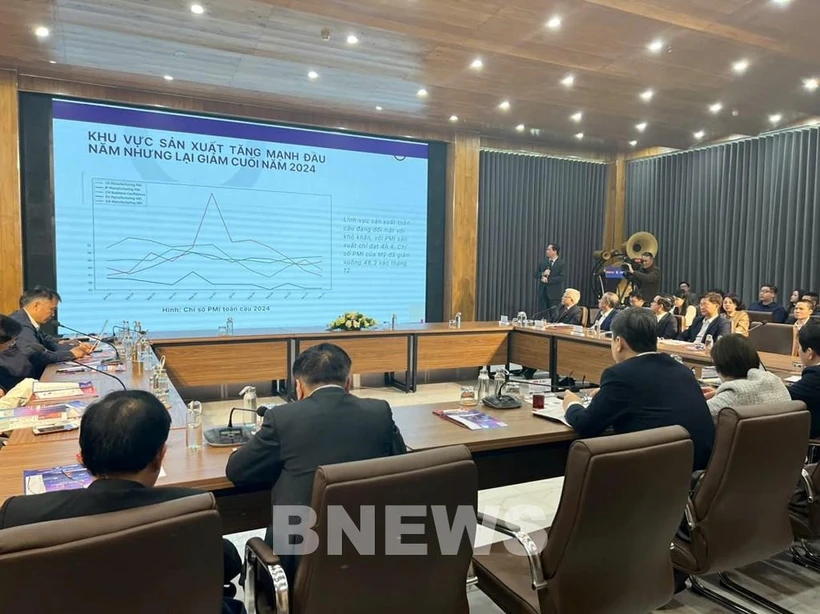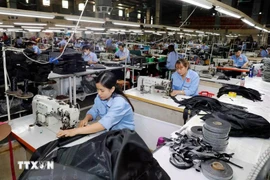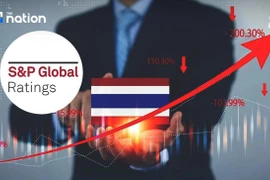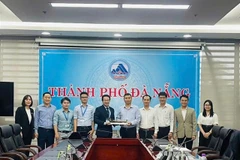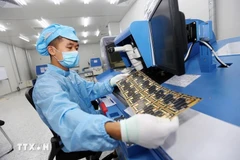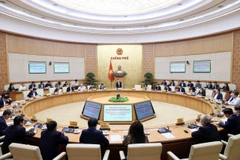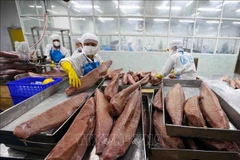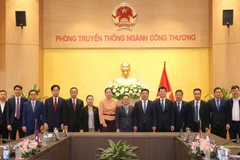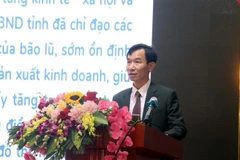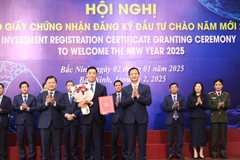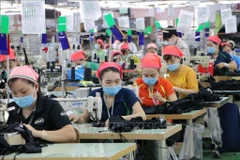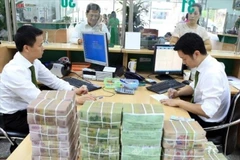Hanoi (VNA) – A policy dialogue was held in Hanoi on January 3 to review Vietnam's macroeconomy in 2024 and discuss prospects for 2025.
The event was organised by the Vietnam Institute for Economic and Policy Research (VEPR) under the University of Economics and Business of the Vietnam National University, Hanoi, in collaboration with the Vietnam Association of Small and Medium Enterprises and e-magazine VnEconomy.
VEPR Deputy Director Nguyen Quoc Viet highlighted the positive outcomes in 2024 as seen in the rebounds of demand, export value, foreign direct investment (FDI), and private sector investment. However, households spending remained weak, domestic consumption drivers such as accommodation and restaurant services rose by just 13% while tourism revenue up 17.3%, and public investment disbursement fell short of targets.
Despite challenges, the numbers of new businesses and those resuming operations grew even more strongly than the pre-COVID-19 period. Monetary supply growth continued to bounce back since the second half of 2024, he pointed out.
Forecasts for many indexes indicate a bright economic prospect for 2025, with GDP projected to expand 6.5%. Growth drivers like public and private investments and foreign trade remain robust. A weaker US dollar and lower US Federal Reserve interest rates are expected to benefit Vietnam's exports, especially to the US.
However, long-term risks such as climate change and rapid population aging threaten macroeconomic stability, Viet noted, emphasising the need to stay focused on keeping macro-economic stability in tandem with boosting faster and stronger growth recovery, issuing well-planned policies to ensure businesses' resilience against policy shocks, alongside fostering sustainable development by promoting new growth models like green, digital, and circular economies.
In the medium term, it is important to upgrade infrastructure, improve the workforce's capabilities and skills, develop science - technology to enhance competitiveness, and facilitate innovative and sustainable business practices. In the long run, he suggested building and implementing focus-driven development policies while ensuring efficient public investment disbursement.
Can Van Luc, Chief Economist from the Bank for Investment and Development of Vietnam (BIDV) and member of the National Advisory Council for Financial and Monetary Policies, stressed the importance of addressing the trade deficit in services, accelerating public investment disbursement, and fostering private investment.
He also highlighted the need for effectively stimulating consumer demand, and fueling new growth drivers such as digital transformation, science - technology, and institutional reforms more strongly and efficiently.
Luc called for decisive reforms and improved transparency in lawmaking, as well as a stronger focus on national database management to serve digital transformation. Coordinated fiscal, monetary, and pricing policies will be crucial to coping with external risks. Growth quality also needs to be ensured through productivity and capital efficiency improvements./.
